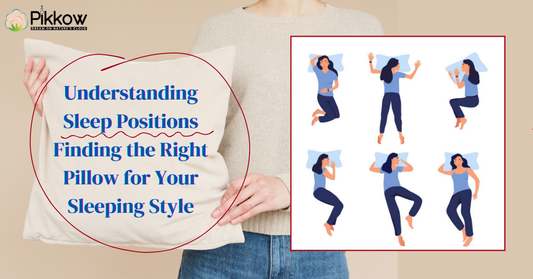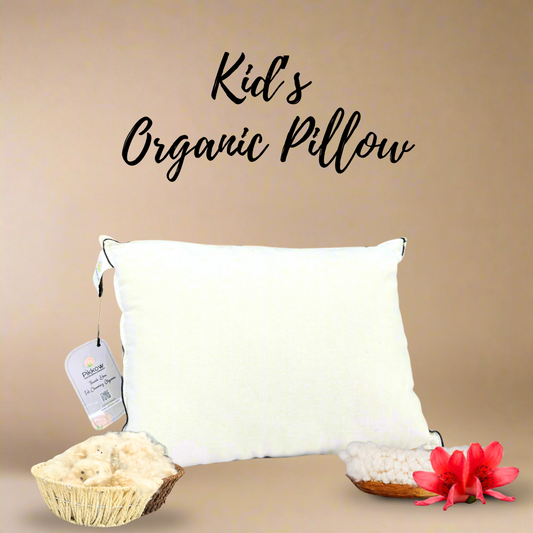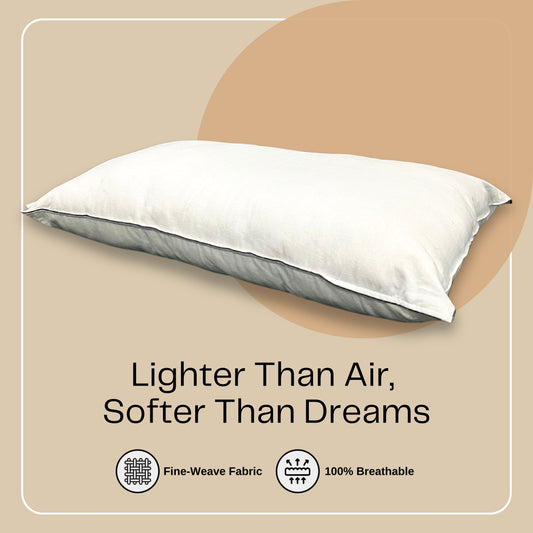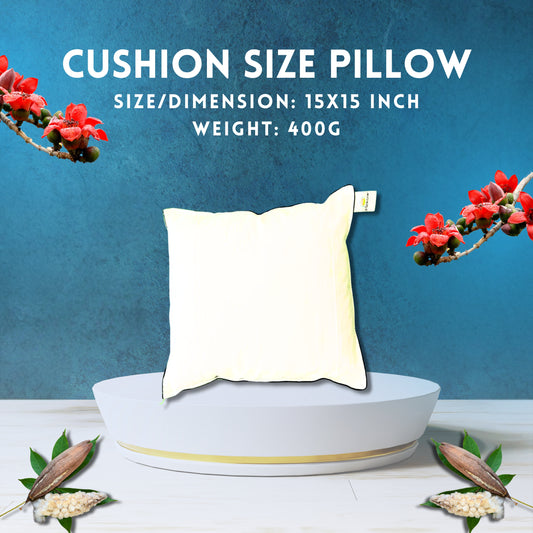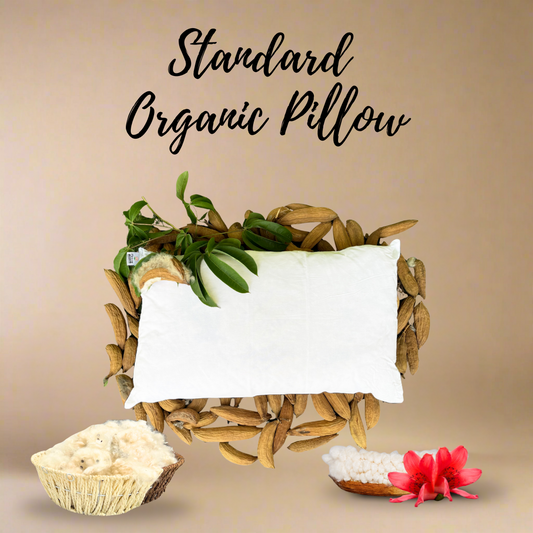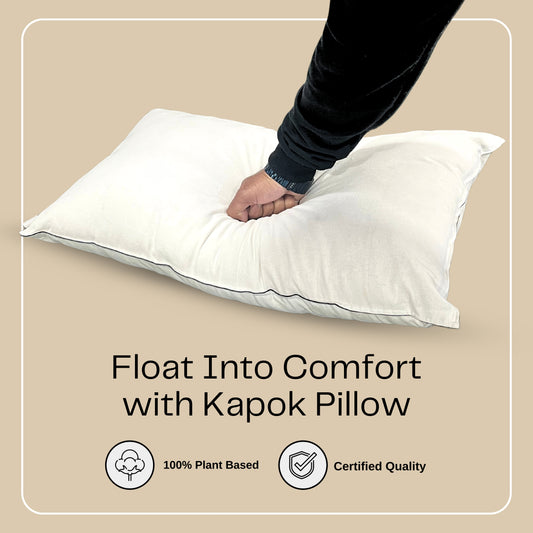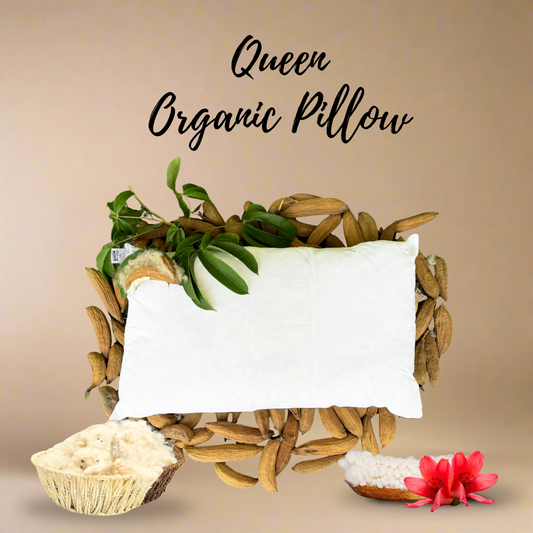Achieving a restful night's sleep is crucial for maintaining our health and well-being. One of the key factors that contribute to a restful sleep is the pillow we use. The best pillow material for sleeping can significantly enhance your comfort and support, leading to better sleep quality. In this blog, we'll explore the various pillow material types, compare their benefits, and highlight why Kapok is considered the best.
Introduction
The search for the best pillow material can be overwhelming with so many options available. From natural to synthetic materials, each type offers unique benefits. Understanding the different pillow materials and their specific advantages can help you make an informed decision.
Understanding Pillow Material Types
When it comes to choosing a pillow, the material is a crucial factor. Different pillow materials offer different levels of comfort, support, and durability. Here are some common pillow material types:
-
Memory Foam: Known for its ability to conform to the shape of your head and neck, memory foam provides excellent support and pressure relief. However, it can retain heat, making it less ideal for hot sleepers.
-
Down: Made from the soft feathers of ducks or geese, down pillows are incredibly soft and lightweight. They offer good insulation but may not provide enough support for some sleepers and can trigger allergies.
-
Feather: Similar to down, feather pillows are filled with the outer feathers of ducks or geese. They are firmer than down but can be noisy and require regular fluffing.
-
Latex: Natural latex pillows are resilient and offer good support. They are hypoallergenic and resistant to dust mites and mold but can be heavy and expensive.
-
Polyester: Synthetic polyester pillows are affordable and hypoallergenic. However, they tend to flatten quickly and may not offer the best support.
-
Kapok: Derived from the seed pods of the Kapok tree, this natural fibre is lightweight, hypoallergenic, and sustainable. It provides a soft and plush feel while offering adequate support.
Understanding how pillow materials affect sleep comfort is key to selecting the best pillow for sleeping.
Pillow Material Comparison
Comparing the various best pillow materials can help you determine which one suits your sleeping needs the best. Here's a brief best pillow materials comparison:
|
Pillow Material |
Comfort |
Support |
Durability |
Heat Retention |
Allergy-Friendly |
|
Memory Foam |
Excellent |
Excellent |
High |
Retains heat |
Medium |
|
Down |
Very soft |
Medium |
Medium |
Good |
Low (can trigger allergies) |
|
Feather |
Soft-Firm |
Medium-High |
Medium |
Good |
Medium |
|
Latex |
Firm |
Excellent |
High |
Good |
High |
|
Polyester |
Medium |
Low |
Medium |
Good |
High |
|
Kapok |
Very soft |
Good |
High |
Excellent |
High |
-
Memory Foam: Excellent support and pressure relief but can retain heat.
-
Down: Soft and lightweight but may lack support and can cause allergies.
-
Feather: Firmer than down but can be noisy and require fluffing.
-
Latex: Resilient and hypoallergenic but heavy and expensive.
-
Polyester: Affordable and hypoallergenic but flattens quickly.
-
Kapok: Lightweight, hypoallergenic, and sustainable, providing a balance of softness and support.
Which Pillow Material is Best for Sleeping?
The question of which material pillow is best depends on individual preferences and needs. However, Kapok stands out as an excellent choice due to its unique properties.
Why Kapok is the Best Pillow Material for Sleeping
Kapok is a natural fibre harvested from the seed pods of the Kapok tree. It offers several advantages that make it the best material for pillow:
-
Softness: Kapok is incredibly soft, providing a luxurious feel that enhances comfort. It is considered one of the softest pillow materials.
-
Support: Despite its softness, Kapok offers adequate support to maintain proper neck and spine alignment.
-
Hypoallergenic: Kapok is naturally resistant to dust mites and mold, making it suitable for allergy sufferers.
-
Breathability: Kapok fibres allow for excellent airflow, keeping you cool and comfortable throughout the night.
-
Sustainability: Harvesting Kapok is eco-friendly as it doesn't require cutting down trees, making it a sustainable choice.
-
Durability: Kapok pillows maintain their shape and loft over time, ensuring long-lasting comfort.
Advantages of Choosing Kapok for Your Pillow Material for Sleeping
Choosing Kapok as your best pillow material for sleeping comes with numerous benefits:
-
Eco-Friendly: Kapok is a renewable resource that doesn't harm the environment during harvesting.
-
Health Benefits: Its hypoallergenic properties help reduce the risk of allergies and respiratory issues.
-
Comfort: The soft and plush feel of Kapok enhances sleep comfort, leading to better rest.
-
Temperature Regulation: The breathability of Kapok fibres prevents heat retention, keeping you cool.
-
Support: Kapok provides the right balance of softness and support, promoting proper spinal alignment.
How to Choose the Right Kapok Pillow
When selecting a Kapok pillow, consider the following factors to ensure you get the most comfortable pillow material for your needs:
-
Loft: Choose a pillow with the right loft (height) to match your sleeping position. Side sleepers may need a higher loft, while back and stomach sleepers may prefer a lower loft.
-
Firmness: Kapok pillows can vary in firmness. Select one that provides the level of support you need without sacrificing comfort.
-
Cover Material: Opt for a pillow with a breathable and hypoallergenic cover to enhance the benefits of Kapok.
-
Adjustability: Some Kapok pillows come with adjustable fill, allowing you to customize the loft and firmness to your preference.
-
Certifications: Look for pillows certified by reputable organizations to ensure they are free from harmful chemicals and sustainably sourced.
When it comes to choosing the best pillow for sleeping, Pikkow pillows stand out as an excellent choice. Renowned for their use of premium Kapok, Pikkow offers the best pillow materials on the market. Kapok’s natural, hypoallergenic properties combined with Pikkow’s superior craftsmanship result in a pillow that provides unmatched comfort and support. Whether you're looking for optimal sleep quality or a pillow that aligns with eco-friendly practices, Pikkow ensures you get the highest pillow quality for a restful night's sleep.
Conclusion
Finding the best pillow material for sleeping is essential for achieving restful and rejuvenating sleep. While there are many different pillow materials available, Kapok stands out due to its unique combination of softness, support, and sustainability.
By understanding the pillow material types and conducting a thorough best pillow materials comparison, you can make an informed decision. Kapok, with its numerous advantages, emerges as the top choice when considering which material pillow is best.
Embrace the benefits of Kapok for your best pillow for sleeping and experience the difference in your sleep quality. With its eco-friendly nature, hypoallergenic properties, and superior comfort, Kapok is truly the most comfortable pillow material. Invest in a Kapok pillow today and enjoy the restful sleep you deserve.
FAQs
Q. What are some tips for improving sleep quality?
A. To improve sleep quality, establish a regular sleep schedule, create a comfortable sleeping environment, limit exposure to screens before bedtime, avoid caffeine and heavy meals in the evening, and engage in relaxation techniques like meditation or reading.
Q. How many hours of sleep do I need each night?
A. Most adults need between 7 to 9 hours of sleep per night to function optimally. However, individual sleep needs can vary depending on age, lifestyle, and overall health.
Q. What should I do if I have trouble falling asleep?
A. If you have trouble falling asleep, try establishing a calming pre-sleep routine, such as taking a warm bath, reading a book, or practicing deep breathing exercises. Avoid stimulants like caffeine and electronics before bed.
Q. Can a lack of sleep affect my health?
A. Yes, chronic sleep deprivation can lead to various health issues, including weakened immune function, weight gain, increased risk of chronic diseases like diabetes and heart disease, and impaired cognitive function and mood.
Q. What are some common sleep disorders and their symptoms?
A. Common sleep disorders include insomnia (difficulty falling or staying asleep), sleep apnea (pauses in breathing during sleep), restless legs syndrome (uncomfortable sensations in the legs), and narcolepsy (excessive daytime sleepiness). Symptoms can vary but often include fatigue, irritability, and difficulty concentrating. If you suspect you have a sleep disorder, consult a healthcare professional for evaluation and treatment.



